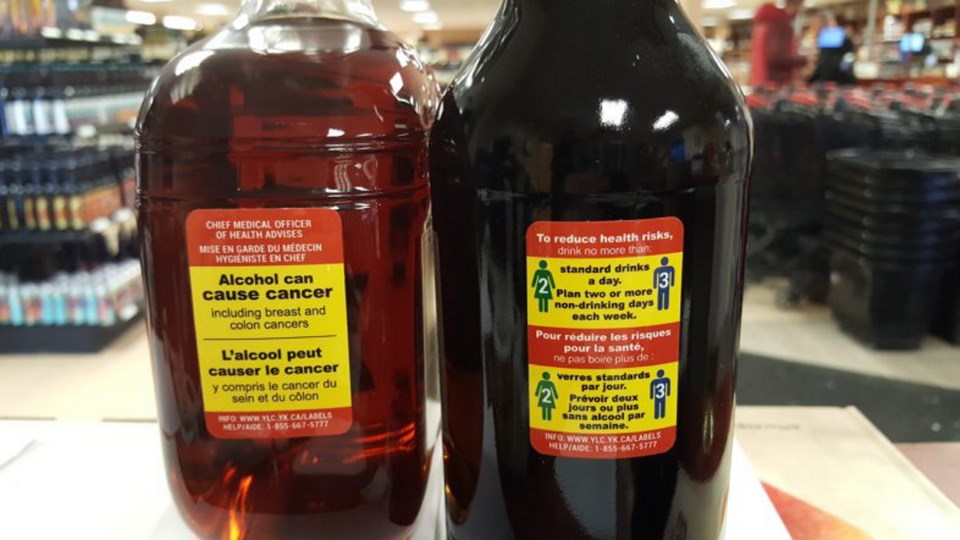Customers at Whitehorse liquor stores will be getting a dose of reality this week when they pick up a bottle of booze or can of beer.
A new warning label, telling consumers about the link between alcohol use and the increased risk of breast and colon cancer, will be on each bottle and can in the store as part of a study led by the University of Victoria’s Canadian Institute for Substance Use Research (CISUR) and Public Health Ontario.
CISUR director Tim Stockwell said the study is about giving drinkers the kind of information they need.
The labels give details of Canada’s low-risk drinking guidelines as well as cancer risks.
Stockwell said the study will look at a number of things, including behavioural change and the effect on alcohol sales.
He noted there are theories that heavy drinkers will use information, such as the guideline of having just two drinks a day, as reason to seek out the kind of spirit that gives them the best bang for their buck. Others suggest it might help people stay within Canada’s existing low-risk drinking guidelines. “We will be interested to see if any of that happens at all,” he said.
Early consumer focus groups in the Yukon found strong support for enhanced alcohol labels. They also found consumers were more likely to correctly estimate how much they were drinking when presented with labels containing standard drink and low-risk drinking guideline information.
“Our research told us that consumers would be accepting of these new enhanced labels,” said Kate Vallance, research associate at CISUR. “For this second phase of the study, we will apply these findings in a real-world setting instead of in a focus group.”
The labels will remain on bottles and cans for the next eight months. It will take about a year and a half to do surveys and determine results.
Stockwell said the liquor companies are less than enthused.
“I think they are white with fury. That’s to be expected,” he said. “Nobody would want a product they make so much money from to suddenly have a label that says this can give you cancer.”



